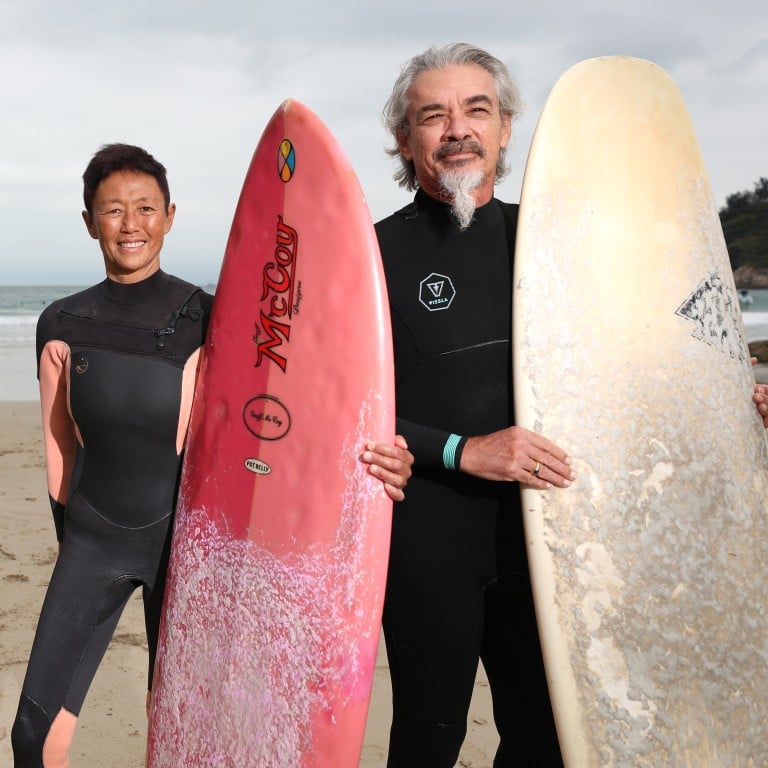
How surfing keeps you healthy and young at heart: ‘silver surfers’ on riding waves in their 60s
- A quartet of Hong Kong wave riders in their 60s share tips on keeping up with the physically challenging sport, including diet and injury management
- Sharing the fun across generations, especially with grandkids, also keeps them feeling young
“I’m going to surf until I’m 100.”
Wanda Kennedy would repeat this to her schoolmates when she started surfing as a teenager in Australia. More than 50 years later, the 68-year-old Hongkonger and retired English teacher, nicknamed “Tai-san” or Tarzan for her athleticism, is still at the physically demanding sport, catching the waves at Sai Kung’s Tai Long Wan (“Big Wave Bay”) every weekend.
Kennedy is among a handful of Hong Kong’s surf stalwarts above the age of 60, including fellow Big Wave Bay regular Wilma Komala, and Robert Stewart from Mui Wo on Lantau Island. All three are regarded as local legends for their dedication to the lifestyle.
“Once you get the surfing bug, you never ever lose it,” says Stewart, who at 61 has been surfing for more than 45 years. “It’s almost a religion. We revere the best surfer, the best spots – and when you’re done, it’s like being done at church. You come out feeling as if your soul has been cleansed, because of the water, the sun and the wind.”
Komala, 64, is a familiar sight at Big Wave Bay with her pink board and pink lip balm – so much so that locals call her “The Pink Lady”. Raised in Hong Kong with an Indonesian heritage, the business school lecturer began surfing at 40, uncommon in a sport in which some begin as early as five.
“I’d be in the water getting trashed by waves and laughed at by people,” recalls Komala, who grew up swimming in Hong Kong’s waters, but only picked up a board after moving to Big Wave Bay in 1995. “It was annoying, but I said, I’m gonna sort this out, I’m gonna do it. Why? Because I like it.”
How to live longer and stay young and positive as you age
Starting older has an advantage, according to Komala, who points out: “You think more before you do something stupid.”
Under certain conditions, surfing can be dangerous. Kennedy and Stewart have saved surfers from rips – powerful currents that pull people out to sea – on multiple occasions.
“Fear, perhaps of a new spot, or big [wave] days, comes into surfing a lot – but it helps you grow, and shows that you’re alive,” says Stewart. The air traffic controller has saved three surfers from rips by hauling them onto his board and paddling them to shore. “We also have to understand the risk-reward factor. At this age you injure yourself more easily, and it takes longer to recover.”
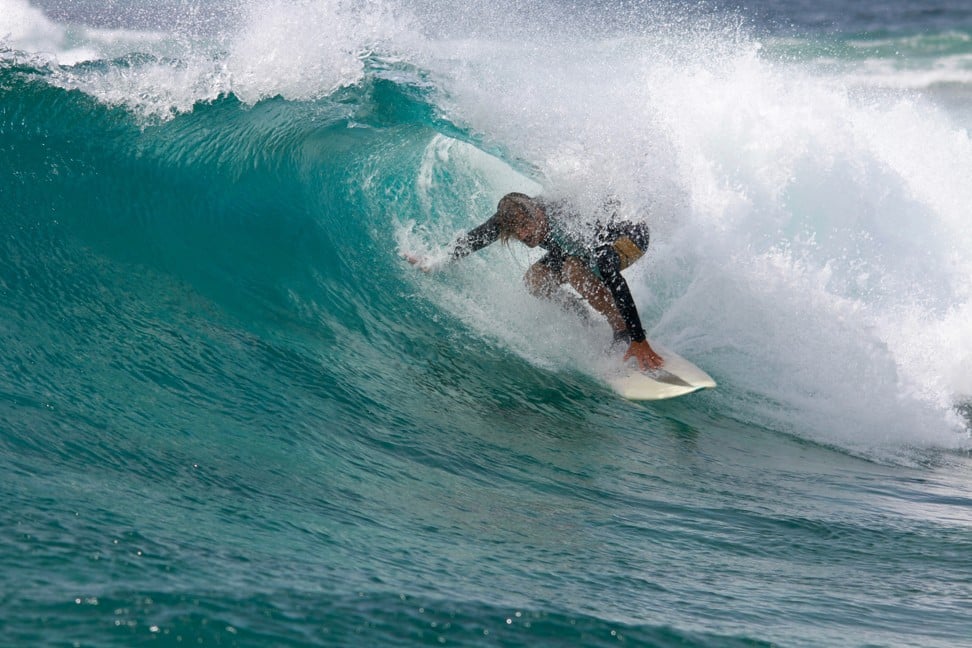
Kennedy and Komala agree, saying they keep to smaller waves, reducing risk to ensure they can continue the sport. “I know my limits,” says Kennedy. “Now it’s a matter of maintaining what I do.”
When it comes to maintaining fitness, all three athletes agreed that diet, particularly one that is plant based, plays a crucial role.
“Breads and sugars make me feel very lethargic – I can’t live on cakes and biscuits,” explains Kennedy, a pescatarian (someone who eats fish, but not other animal flesh). “I’ll eat rice crackers, noodles, vegetables. I avoid flavoured snacks and don’t eat out much because MSG runs you down.”
“Everybody is different, which will affect what the best diet for them is,” adds Stewart. “I take fish oil and anti-inflammatory foods to maintain joint mobility.”
Stewart also recommends leveraging equipment that can make up for the dip in strength as you age. For example, he uses thicker, wider (high volume) boards designed to require less paddling power.
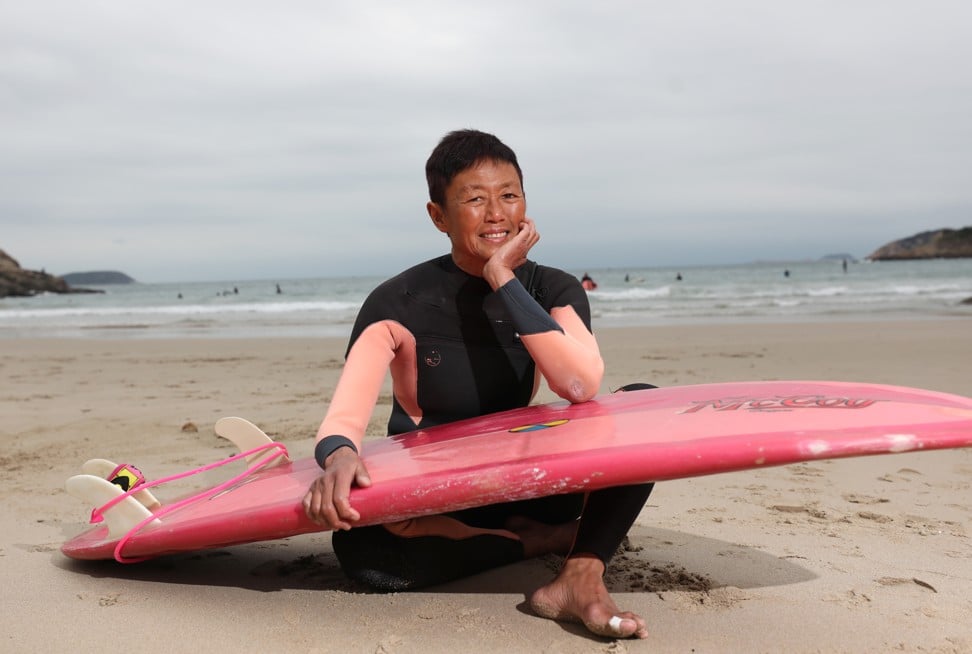
However, a natural reduction in physical prowess, according to these surf veterans, should not be an excuse to cease physical activity.
“I don’t ever want to not be fit,” says Kennedy, who persisted in ocean sports while raising children. “Why do people feel the middle-aged spread is the norm? Make time to exercise, if it’s an hour, or even just 30 minutes daily. You can’t be too busy for your health. If you really want to do something, you can fit it in.”
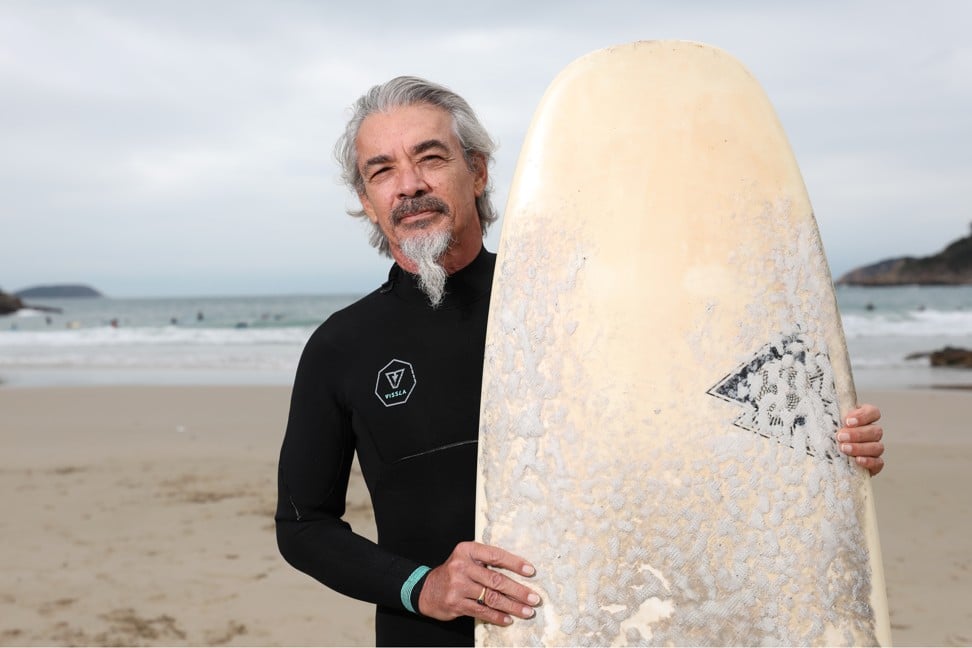
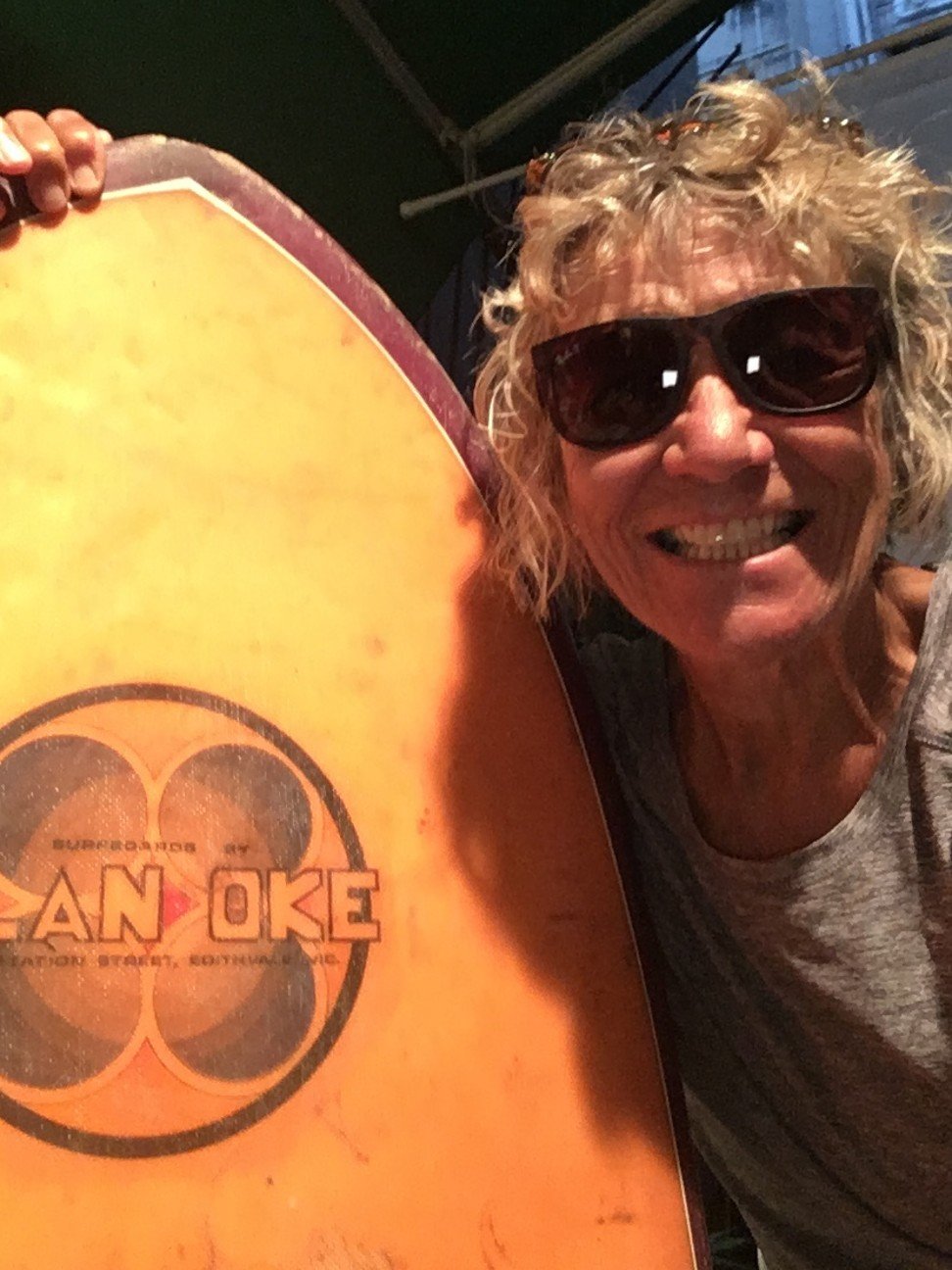
This affinity toward each other, the surfers say, easily transcends age barriers.
“I can hang out in the water with a 70-year-old or a five-year-old,” Kennedy says. “It brings everyone together because we speak the same language – and I keep the younger ones in their 40s and 50s motivated.”
“The younger surfers keep us feeling young,” continues Stewart. “And that’s the intention: to die [feeling] young as late as possible.”
Getting older is not just about borrowing vitality from the young – it is just as much about sharing the fun with them.
As Komala got swept up into the surf scene, she regularly brought her son along. She breaks into a smile as she describes a trip to Australia’s Sunshine Coast, where the pair surfed alongside dolphins.
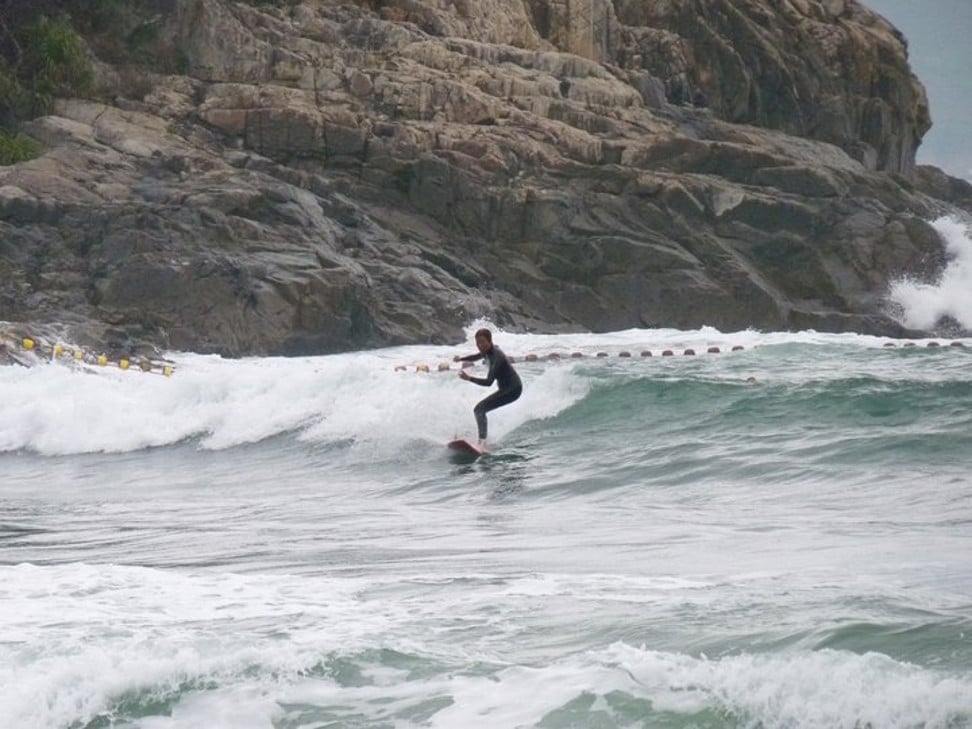
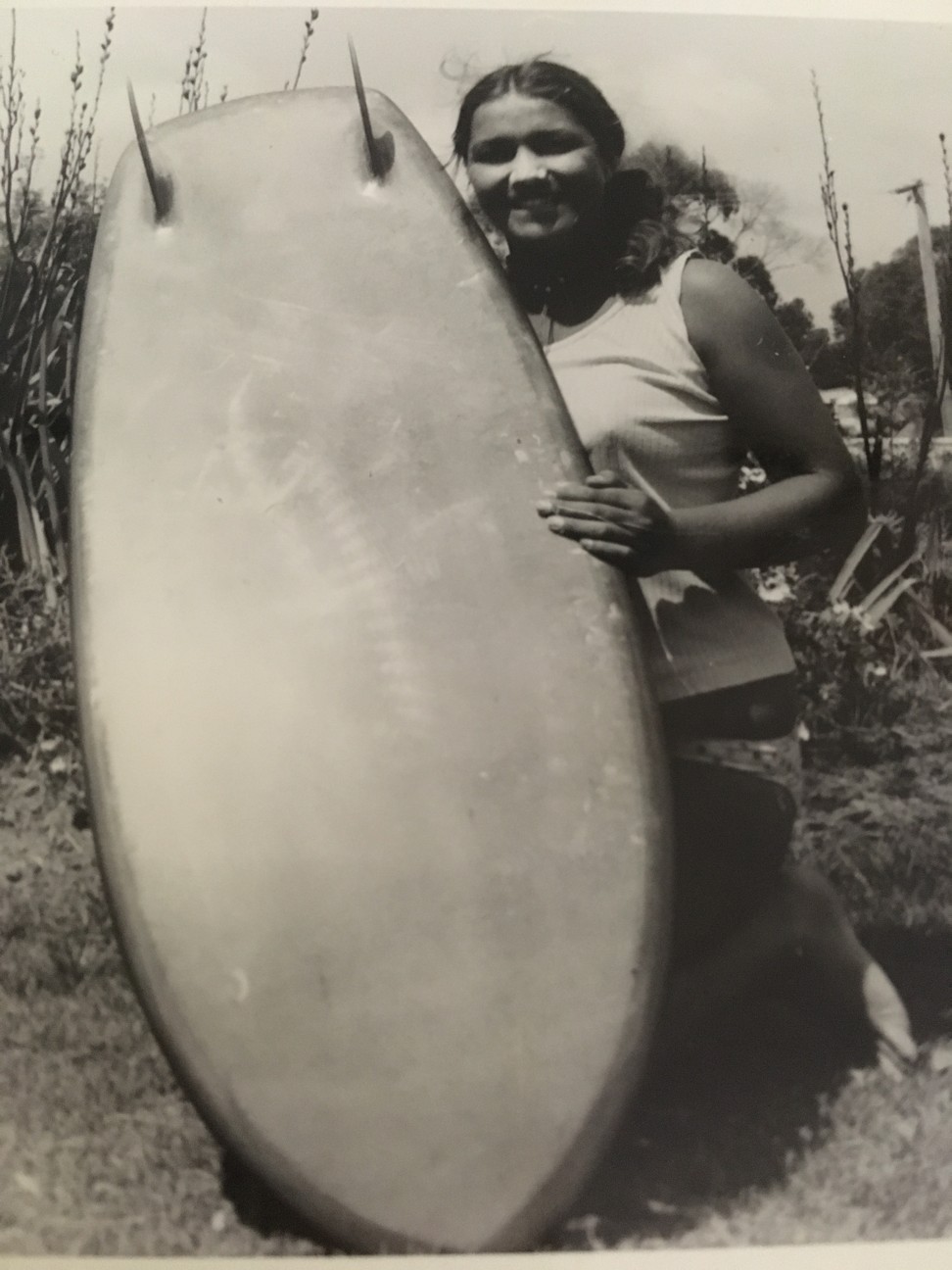
Kennedy echoes the sentiment, showing me a video of her grandchildren – one four and the other six – learning to bodyboard.
None of the silver surfers showed the slightest intention of giving up the sport. All are hardy, sun-bronzed proof that youthful vigour is not constrained by age.
Back in Komala’s home, as we wrapped up our conversation, I had to ask: why the pink?
“Because I like it,” she retorts. “Next question?”
Maybe finding out what you like best, then sticking to it, is one simple secret to staying young – for as long as possible.
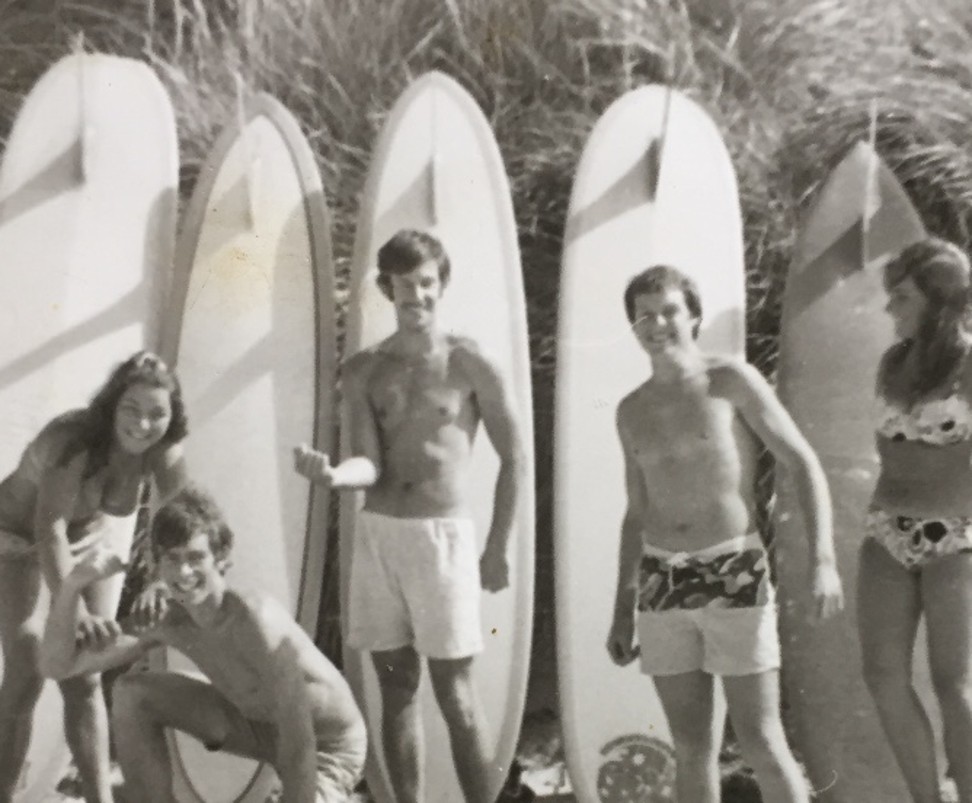
Why I started bodyboarding at 62
Surfing may steal the limelight, but its close relative bodyboarding can involve equally powerful waves and flashy stunts. Instead of standing, bodyboarders lie flat on smaller, square-shaped boards, often wearing fins to move at speed.
John Nichols first began bodyboard surfing at 62.
“As a bodyboarder I always join the surfers,” says Nichols, now 67. “All my friends surf the same breaks and like to watch me make those big drops.”
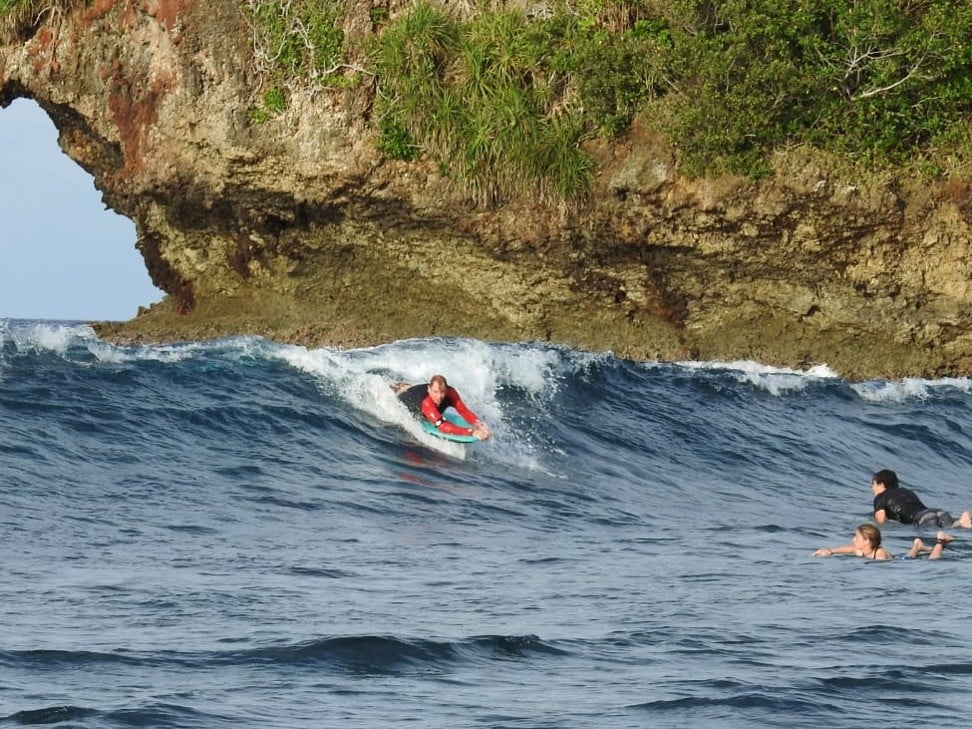
Nichols, a retired engineer for a US defence contractor, always wanted to ride waves, but struggled to find time as a father of five in Boston. After arriving in Hong Kong and retiring, he finally saw his chance to learn bodyboarding.
“I did get criticism of my style and form [when starting out] and it hurt a little but I took it as a challenge to improve,” says Nichols. “I understand in life you are always learning and getting better every day.”
Nichols’ journey has involved setbacks, including a swollen disc in his spine, which prevented him from bodyboarding for months.
“I kept looking forward to when I’d be back in the water, and that helped me get better,” says Nichols. “Bodyboarding is so much fun, it makes you want to stay fit. Plus, it helps me keep up with my younger family members.”
What is his trick to staying fit as you age?

